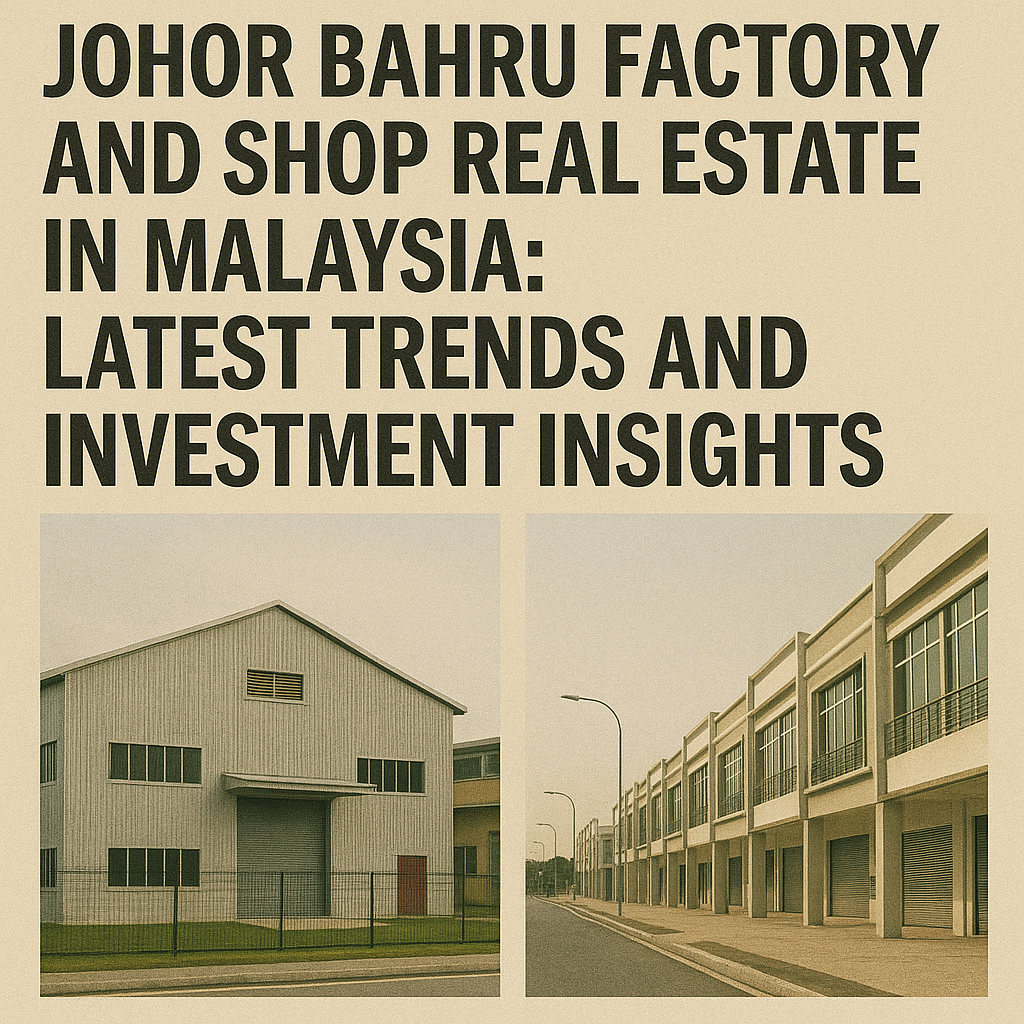Introduction
As a professional focused on factory and shop real estate in Johor Bahru, Malaysia, you must be keenly aware of every market pulse. Recently, the Malaysian real estate market, especially in the Johor Bahru region, is undergoing a series of significant policy adjustments and market changes. These changes not only affect mortgage interest rates but also profoundly shape the landscape of foreign investment in local properties. This article will provide an in-depth analysis of these latest developments, combined with the Singapore factor, to offer you unique investment insights.
Mortgage Interest Rate Adjustments: OPR and Your Investment Costs
Mortgage interest rates in Malaysia are closely linked to the Overnight Policy Rate (OPR) set by Bank Negara Malaysia. Adjustments to the OPR directly influence the Base Rate (BR/IBR) and Base Lending Rate (BLR/IFR) of commercial banks, thereby affecting your mortgage costs. For instance, Hong Leong Bank’s latest reference rates show a Standardised Base Rate (SBR) of 2.75%, a Base Rate (BR/IBR) of 3.63%, and a Base Lending Rate (BLR/IFR) of 6.64% (as of July 14, 2025). Investors should closely monitor the future direction of the OPR, as it directly impacts your financing costs and investment returns.
Foreign Property Ownership Policy: Opportunities and Challenges
To attract high-net-worth investors, the Malaysian government continues to optimize its foreign property ownership policies. As of January 1, 2024, the minimum purchase amount for foreigners buying property in Malaysia is RM500,000. Foreigners can acquire both freehold and leasehold properties (up to 99 years). However, it is important to note that the Johor State Government has announced higher approval fees for foreigners purchasing real estate in Johor, effective July 1, 2025. This policy aims to better reflect market trends and state development needs, and investors should consider this factor when acquiring properties in Johor Bahru.
Johor Bahru Real Estate: The Deep Impact of the Singapore Factor
As the capital of Johor, Johor Bahru is just a bridge away from Singapore, and its real estate market is significantly influenced by Singapore’s economy and policies. The construction of the Johor Bahru-Singapore Rapid Transit System (RTS Link), expected to be completed by the end of 2026 and operational by January 1, 2027, will greatly facilitate cross-border movement. This will further boost demand for real estate in Johor Bahru, especially properties along the RTS line. Due to Singapore’s high property prices and cost of living, an increasing number of Singaporeans are choosing to purchase properties in Johor Bahru, whether for self-occupation, vacation, or investment. Data indicates a significant increase in demand for Johor properties from Singaporean buyers, making them a key driving force in the Johor Bahru real estate market. For factory and shop properties, the opening of the RTS Link will bring more human and logistical traffic, further enhancing the value and rental yield of commercial properties.
Investment Phenomena and Trends: Who is Investing in Johor Bahru?
Currently, the primary buyers in the Johor Bahru real estate market are Malaysian locals and Singaporeans. Although Chinese investors were a significant force in the early stages, Singaporean buyers have now become a crucial segment, with almost one in four buyers being Singaporean. They invest in Johor Bahru not only for its relatively lower property prices and cost of living but also for the anticipated convenience and asset appreciation potential brought by the future RTS Link. For factory and shop properties, investors tend to favor areas with convenient transportation, well-developed amenities, and strong development potential. As a major industrial and commercial hub, Johor Bahru’s strategic geographical location and increasingly完善 infrastructure make it an ideal choice for industrialists and businesses.
Conclusion and Recommendations
The factory and shop real estate market in Johor Bahru, Malaysia, is dynamic but also subject to policy adjustments and market fluctuations. Investors should:
1.Closely monitor mortgage interest rate trends: Understand the impact of OPR adjustments on financing costs.
2.Stay informed about new foreign property ownership policies: Especially the higher approval fees soon to be implemented in Johor.
3.Leverage the Singapore factor: The opening of the RTS Link will be a significant positive factor.
4.Carefully evaluate investment areas: Choose factory and shop properties with convenient transportation, comprehensive amenities, and strong development potential.
We hope this article provides valuable content for your real estate blog and helps you seize opportunities and achieve excellent investments in the Johor Bahru real estate market.




Join The Discussion